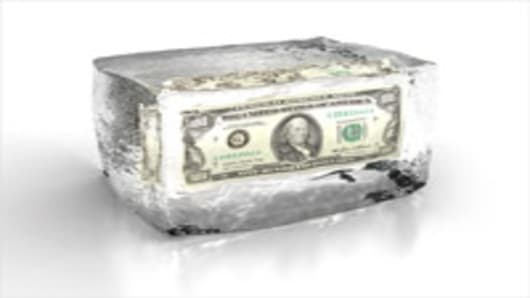Hedge funds remain cautious and defensive after largely sitting out the rally in the U.S. stock market since the start of June, contributing to the lowest U.S. stock market trading volumes since 2007.
The lack of conviction comes as the industry struggles with lackluster performance that leaves a quarter of hedge funds at least 10 percent below their high water marks — the point where they can charge investors incentive fees — according to Credit Suisse.
Philip Vasan, head of prime services for Credit Suisse, said: “Hedge funds did not take the bait of the June rally. When we look at the amount of risk that the hedge fund community took in the first quarter of 2012 compared to now, by most measures they’ve only been willing to commit a portion of risk with the memories of last year still fresh.”
A year ago a large number of investors had become increasingly optimistic on the outlook for the U.S. economy. The euro zone market turmoilarising from fears over Italy and Spain was only just beginning.
Now, in what the head of one fund of hedge funds described as “an impossible environment for active management”, funds are willing to sacrifice returns in order to protect capital.
The median hedge fund was up just 1.9 percent for the first half of the year, according to Deutsche Bank, lagging behind the 4.5 percent performance for the MSCI world.
Scott Warner, responsible for long/short equity strategies at Paamco, a fund of hedge funds, said pessimism had been growing since May. “We’ve seen pretty anemic top line revenue growth during this earnings season, a lot of management teams have pushed out expectations into the second half,” he said. That has prompted investors to question assumptions for US corporate profitability.
Mr. Vasan said that just over a fifth of hedge funds were now overall short the market, a measure that has historically ranged from 10 per cent to 30 per cent. But the lack of conviction is a factor in the lowest U.S. trading volumes for equities and exchange traded funds since 2007.
In the first half of the year, average trading volume in stocks was 5.7 billion shares per day, down from a peak of 7.9 billion in 2009, according to Credit Suisse.
Continued poor performance may start to call into question the viability of many hedge funds as technology and regulatory costs continue to rise. For funds with less than $100 million under management, fully one-third were more than 10 per cent below their high water mark, Credit Suisse said.
In the first half of the year, 464 hedge funds closed their doors, with liquidations up a quarter on the year before, but were still outweighed by 608 launches. The industry has attracted $20 billion of new capital so far this year, about a third of the inflows in the same period last year.


